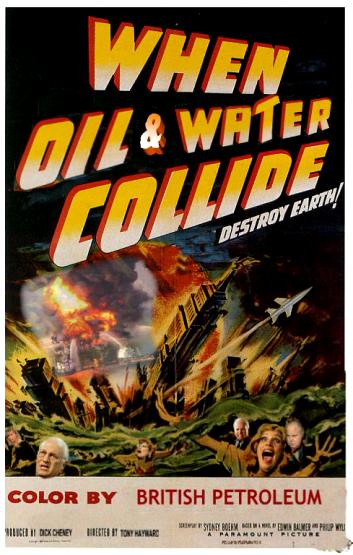
The activists, speaking on their return to Germany, Greece and Turkey on Tuesday, said that as well as firing live and plastic rounds, commandos had administered electric shocks and beaten passengers during the assault.
Israeli soldiers, meanwhile, said the troops acted in self-defence after they were attacked while boarding the Turkish ship, the Mavi Marmara.
NORMAN PAECH, GERMANY
 Norman Paech, a former member of Germany's Left Party, was aboard the Mavi Marmara, the largest of the six ships in the convoy.
Norman Paech, a former member of Germany's Left Party, was aboard the Mavi Marmara, the largest of the six ships in the convoy. Speaking at a news conference in Berlin, he said the ship was surrounded by small Israeli assault boats on Monday morning at about 0430 local time.
"Moments later, we heard detonations and then soldiers from helicopters above us dropped down on board.
"The soldiers were all masked, carrying big guns and were extremely brutal."
Mr Paech said he only saw three activists resisting.
"They had no knives, no axes, only sticks that they used to defend themselves," he told reporters.
But he said he could "not rule out" that others used weapons somewhere else on the boat.
NILUFER CETIN, TURKEY
Turkish activist Nilufer Cetin told reporters she hid with her baby in the bathroom of her cabin aboard the Mavi Marmara."When the Mavi Marmara continued on its course, the harassment [from Israeli ships] turned into an attack," she said.
"They used smoke bombs followed by gas canisters. They started to descend onto the ship with helicopters.
"It [the violence] was extremely bad and brutal. The ship turned into a lake of blood.
"I was one of the first victims to be released because I had a child. They confiscated everything, our telephones, laptops are all gone.
"We were aware of the possible danger [in joining the trip] but there are thousands of babies in Gaza. If we had reached Gaza we would have played with them and taken them food."
IDF CAPTAIN ARIA SHALIKER
Captain Aria Shaliker was part of Monday's operation."From 10pm to 4am... the Israeli army, again and again, asked the flotilla to please not approach Israel, to not continue sailing in the direction of Gaza," he said.
"When the soldiers went on board in order to take over the ship… they were attacked violently by thousands of extremists... attacking the Israeli soldiers with metal rocks, with knives - and tried to lynch them basically."
DIMITRIS GIELALIS, GREECE
Activist Dimitris Gielalis, who had been aboard the Sfendoni, was among six Greeks who returned home on Tuesday."Suddenly from everywhere we saw inflatables coming at us, and within seconds fully equipped commandos came up on the boat," he said.
"They came up and used plastic bullets, we had beatings, we had electric shocks, any method we can think of, they used."
Mr Gielalis said the boat's captain was beaten for refusing to leave the wheel, and had sustained non-life-threatening injuries, while a cameraman filming the raid was hit with a rifle butt in the eye.
"Of course we weren't prepared for a situation of war," he said.
ANONYMOUS IDF SOLDIER
In an IDF video posted on YouTube, an anonymous Israeli soldier says his arm was broken while he tried to defend himself."We were above the ship hovering above it. We understood there were 15 people on the roof," he said.
"They took [another soldier], tied him to one of the antennas. We came down using the other rope, one by one, and every guy that descended was met by three or four people.
"And they just started beating him up, tearing him to pieces. It was a lynch.
"Every guy that came down the ropes was taken aside, and everyone there had metal rods, knives, sling shots, glass bottles. At one point there was live fire... two guys there had live ammunition.
"They started hitting me with metal rods, and while defending myself, I guess I broke my arm.
"At this point, I didn't even have a weapon in my hands. Any soldier coming down the ropes did not have a gun in his hands. We were empty-handed, our guns were on our backs.
"It's important to clarify that the weapons were riot dispersal means, we had paintball guns.
"They just came prepared for battle. We came prepared to straighten things out, talk to them, convince them to unboard the ship."
ARIS PAPADOKOSTOPOULOS, GREECE
Aris Papadokostopoulos was aboard the Free Mediterranean, travelling behind the Mavi Marmara and carrying mainly Greek and Swedish activists."The Turkish ship [the Mavi Marmara] was in front of us... on which there was a terrible raid from the air and from the sea and from everywhere, with shooting.
Mr Papadokostopoulos said that aboard the other boats, commandos beat activists but nobody was gravely injured.
He said no one put up resistance on the Free Mediterranean, which was carrying a cargo of wheelchairs, building material and medical and pharmaceutical aid.
"Some people were hit by clubs and electric shocks. During their interrogation, many of them were badly beaten in front of us," he said.
http://news.bbc.co.uk/2/hi/middle_east/10206802.stm


















